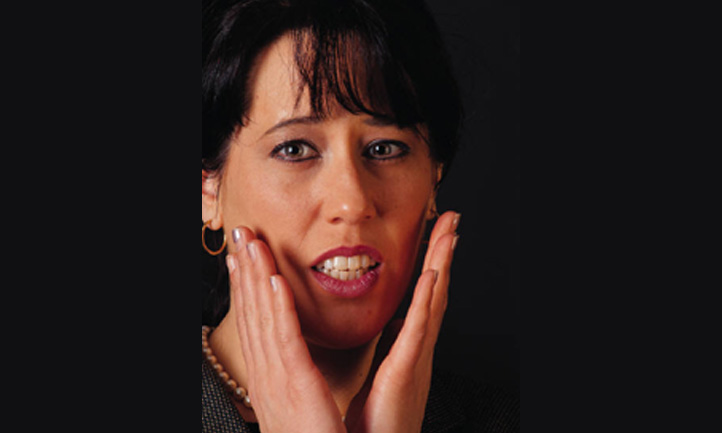You’re Not Going Crazy…
Author: Stephanie Frogge
Oceans of ink have been spilled on the subjects of love and loss, and it makes sense that the two are so closely linked. The pain of loss is in direct correlation with the love we feel. The more we love, the more keenly we feel the absence of that which we love.

This brief article only skims the surface of the facets and complexities of bereavement. For those who like to read, surf the web, watch television, take classes, or seek out experts, there are unlimited sources of in-depth information about grief. You could spend a lifetime working to understand grief, and your education would never be complete.
In part, grief will never be fully understood because it's a human experience, and your personal encounter with it will be a reflection of those things that are exclusively you, the person who died, and your unique relationship with that person. No field of study will ever be able to capture the distinctive and exclusive experience of your grief in this moment.
Despite the reality that your grief experience is going to be unique in many respects, there's at least one universal aspect to it: bereavement is not easy. It turns everything inside out and upside down. And since there's no way anything can be that completely and utterly disruptive and also "normal" in any sense of the word, we think we must be going crazy.
Well, yes and no. If crazy means extreme, senseless, and outrageous, then yes. Bereavement is all of those things. But if crazy means mentally ill, then no. Grief is not a mental health disorder. I recognize that for the bereaved, that’s not necessarily good news. Some of us would absolutely love to be packed off to a nice, cozy little asylum where we didn't have to talk with anyone, interact with anyone, make any decisions, or be responsible for ourselves or anyone else. However, most manifestations of grief, in all their extreme, senseless, outrageous, and unpleasant ways, are quite normal. You will certainly feel, behave, talk, think, and act in crazy ways, but you are not mentally ill.
Important Note: if physical or mental health challenges were already a part of your life journey, bereavement is likely going to make those worse. Please work with your health care professionals to figure out ways to monitor and cope with your bereavement so as to keep complications to a minimum.
You're not going crazy, but grief feels extreme.
Grief lasts a long time, much longer than most people expect or are willing to tolerate. For most of us, it will take a number of years before we are as recovered as we're going to get. Research suggests that it may take a year or more to simply reestablish daily living patterns. You will never again be the person you were before your loved one died, and it takes a long time to find that new way of living. The task takes even longer when the death was sudden and traumatic.
Grief also involves a crazy range of emotions: emotions we didn't even know existed and emotions we were familiar with but are now experiencing at a depth and intensity that we never imagined. These emotions are often extreme: all-encompassing rage, bone-chilling horror, bottomless pits of despair. The feelings are further complicated by their roller coaster characteristics. It never seems to be one thing for very long before we ricochet off in a completely different direction. Many of us have found the intensity of these emotions to be more than our friends and family can tolerate and have found some relief in talking to an experienced mental health professional.
For some, the craziness of grief is manifested in extremes of behavior. We may find ourselves engaging in frenzied activity such as cleaning the house, shopping, immersing ourselves in work, or engaging in uncharacteristic sexual activity. Using activity as a temporary outlet for intense feelings or as a respite from the wearying tasks of mourning can be healthy. Using it to avoid the pain of grief or engaging in behaviors that are hurtful to yourself and others, is not.
You're not going crazy, but grief feels idiotic.
The long version is that trauma changes our chemical make-up and brain wave functioning, which in turn impacts everything we do. The short version is that grief makes us stupid. It's the rare bereaved person who can’t recall several great examples from their own experience. We can't concentrate; we can't remember to do even basic tasks; we forget where we're headed before we even get in the car. It's maddening, and there may be some unpleasant consequences (see what happens when you don't pay the bills for a few weeks), but it's normal. Although this is easier said than done, try to be patient with yourself. And if you must make decisions, talk them over with people you trust.
There may be a part of you that simply cannot believe that what has happened is really true. You may find yourself making up crazy scenarios that "better" explain why your loved one is absent. Your heart and your head may be completely at odds with one another in terms of coming to understand what has happened. You may "see" your loved one in public places, find yourself sniffing their clothes, or believe for a moment that they are calling when the phone rings. This is normal, too. Your inability to fully embrace what has happened is a reflection of the enormity of your loss, not of your mental health. Don't let anyone try to convince you otherwise.
You're not going crazy, but grief feels outrageous.
Your body is going to get in on grieving, too. The list of physical reactions common among the bereaved is nearly endless, but science is finally catching up with what most of us have suspected all along: what goes on in our minds and hearts will be reflected by our bodies. Headaches, sleep disturbances of all kinds, muscle tension, rapid heartbeat, nausea, aches and pains, compromised immunity, and stomach pains are just a few ways that grief can manifest itself physically.
If you already have a medical condition of some kind, you can be sure that grief will impact that, too. Stay in touch with your doctor. Force yourself, if you have to, so that your physical health can be monitored. There's no point in adding another level of stress to your life if you can possibly avoid it.
A final word
The only way to get on the other side of grief is to slog through it. Grief can be postponed, but it cannot be dodged, skirted, or gone under or over. And remember, as painful and crazy-making as grief is, its very intensity is testimony to the power of our love and the significance of our loss.
 By Stephanie Frogge: Stephanie Frogge holds a bachelor’s degree in Criminal Justice from Texas Christian University and a master’s in Theological Studies from Brite Divinity School. She is the assistant director of the Institute for Restorative Justice and Restorative Dialogue at the University of Texas at Austin. With more than thirty years of experience in the area of trauma response, Stephanie is the former National Director of Victim Services at Mothers Against Drunk Driving (MADD) and served two years as the Director of Peer Support Services for TAPS.
By Stephanie Frogge: Stephanie Frogge holds a bachelor’s degree in Criminal Justice from Texas Christian University and a master’s in Theological Studies from Brite Divinity School. She is the assistant director of the Institute for Restorative Justice and Restorative Dialogue at the University of Texas at Austin. With more than thirty years of experience in the area of trauma response, Stephanie is the former National Director of Victim Services at Mothers Against Drunk Driving (MADD) and served two years as the Director of Peer Support Services for TAPS.
